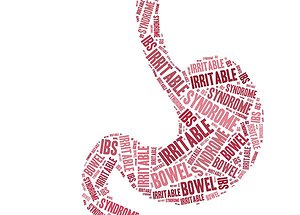IRRITABLE BOWEL SYNDROME (IBS)
What you Probably Already Know !
What is IBS?
According to the NHS (UK) website, Irritable Bowel Syndrome (IBS) “is a common, long-term condition of the digestive system. It can cause bouts of stomach cramps, bloating, diarrhoea and/or constipation. The symptoms vary between individuals and affect some people more severely than others.”
Symptoms of IBS
These are wide ranging but the main ones include the following:-
- Intestinal Spasms
- Pain
- Constipation – IBS-C
- Diarrhoea – IBS-D
- Alternating Bowel Habits – IBS-A
- Bad breath
- Gas
- Bloating
- Cramping/Stabbing Pains
- Poor Skin
- Nausea
What causes IBS?
The exact cause of IBS is unknown, but many doctors think it is related to increased sensitivity of the gut and problems digesting food. While this is often true, they just do not have the time or experience to look at why you are not digesting your food or why your gut may be more sensitive. Current treatments include anti-spasmodics, PPIs, laxatives, anti-motility meds, anti-depressants, probiotics, stress reduction and exercise.
In my experience and my studies, there are many different causes of IBS, many of which are unfortunately mainly overlooked in general GP practices in the UK due to lack of information/ time/resources and more frequently knowledge.
Every single person and every single gut is different. I cannot emphasise that enough!
What works for one will not work for another! There is no one diet that will help everyone, there is no one remedy that will help everyone. It is often a trial and error process which makes it even more frustrating.
The main factors that I believe contribute to IBS include the following:-
1) A lack of beneficial (good) bacteria – overuse of antibiotics during childhood, stress, poor diet, smoking, medications, drugs, etc.
2) SIBO – Small Intestinal Bacterial Overgrowth.
3) Parasitic infections/h pylori/pathogenic bacterial infections/yeast and fungal overgrowth.
4) Overuse of PPI (proton pump inhibitor) – this lowers stomach acid and allows food to putrify in the gut because it is not being broken down. Lower stomach acid also allows bad bacteria to flourish as there is less acid to kill them.
5) Lack of stomach acid, lack of enzymes, bile. Your body needs these to break down your food but ageing, illness, stress, H pylori infection, PPI use, affects these levels.
6) Foods you consume – the very poor western diet, high carb, low fat, high sugar, fizzy drinks, alcohol, smoking etc. or food sensitivities you may have such as dairy, fructose, soy, gluten, egg, lectins, etc. Food sensitivity testing can be carried out to see if you have any food intolerances. You will also probably be lacking in many vital micronutrients such as magnesium, zinc etc.
7) Intestinal Permeability (or leaky gut) - if you have many of the IBS symptoms you quite likely have intestinal permeability which may lead to autoimmune conditions, inflammatory conditions, neurological conditions, anxiety, depression, migraines, skin conditions, sinus problems etc. Because a very high percentage of your immune system is in your gut, if it isn’t working well then you won’t be feeling well! It is also said that our gut is our second brain so it is no wonder if the gut is in poor shape then many people are suffering secondary conditions such as anxiety, depression etc.
8) Hormonal imbalances – the health of your thyroid and adrenal glands can affect how the gut heals, how nutrients are converted into energy and how quickly food passes through your digestive system. Many clients are perpetually stressed which leads to high cortisol levels, depleted vitamins and minerals, exhausted adrenal glands and an underfunctioning thyroid gland.
As you can see, there are many different reasons why you may have IBS !
With the majority of my clients I will run testing. In particular the GI EcologiX which I love to run and analyse with my clients as this gives me the best clinical picture of the condition of their digestive system.
TESTING - Click here for information on PCR DNA stool testing, which looks in depth for parasites, commensal bacteria, pathogenic bacteria, yeast and fungal overgrowth, h pylori etc.






